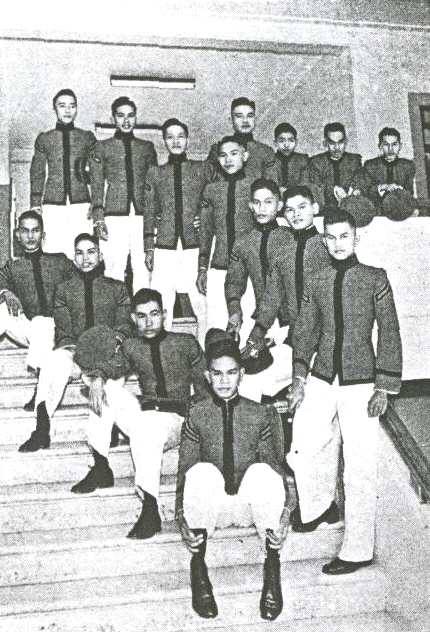
Abat, F.
Alger, J.
Atienza, S.
Battung, G.
Bautista, O.
|
Braganza, A.
Cuesta, G. de la
Dizon, J.
Dizon, P.
Macabuhay, R.
|
Miel, C.
Miravite, F.
Santiago, A.
Utsig, S.
Yumul, V.
|
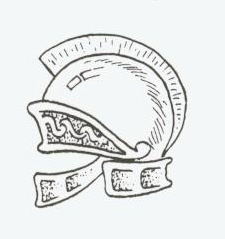
"Cee Company! sing our battle cry...."
|
|
|
|
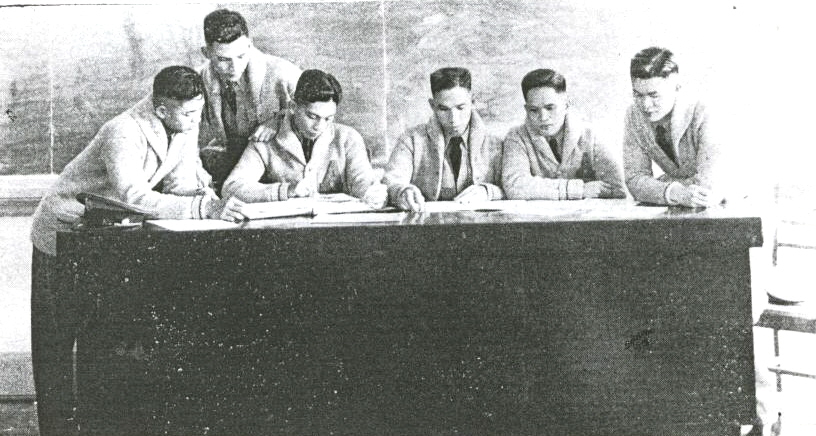
Kintanar, Alcoseba, Macabuhay, Paz, Villanueva, Gidaya
Although patterned after a cross of West Point's "Pointer" and Annapolis 'The Log' it did not hesitate to maintain its local atmosphere and initiative. Articles are not made to add to the enormous brain work the cadets undergo during academics.They are written to shy away from local international problems. They are written not to win any literary prizes or honors but to entertain. We consider above all the readers whose tastes might differ. Serious informative articles come in from cadets and officers to balance the magazine for enjoyment of everybody. Thus the staff aims to bring out a well-balanced cadet organ for the reading pleasure of cadets, femmes, alumni, and friends.
We shall remember the heartaches and frustrations in our first attempt to revive "The Corps".
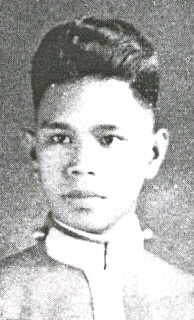
Miravite
Contributing
|
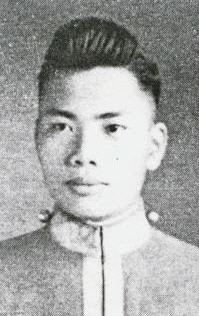
Venadas
News
|
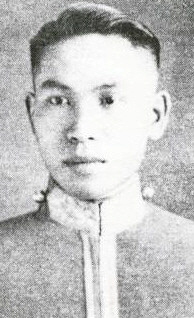
Dizon
Literary
|
|
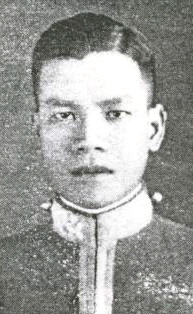
Tongson
Contributing
|
|
|
|
